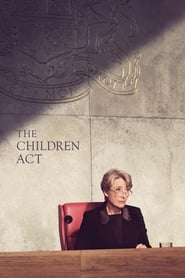The Children Act movie reviews & Metacritic score: Fiona Maye (Emma Thompson) is intensely dedicated to her profession, never finding This review contains spoilers, click expand to view. One of three McEwan adaptations this year (see elsewhere for my thoughts about one of the others, On. The basic point of this movie is a confrontation between a woman striving to be as rational as possible, being a judge, and facing the limitations of.
Ian McEwan writes great novels that most often turn into problematic movies, some. Fionn Whitehead and Emma Thompson in The Children Act. The writing of Ian McEwan - he adapted this screenplay from his own novel - is sophisticated and rewarding.
It is also, arguably, one of the main problems with a film that manages to be both wholly persuasive and utterly preposterous. It stars Emma Thompson, Stanley Tucci, and Fionn Whitehead. And The Children Act is about the kind of secular god the letter of the law becomes — both in what it demands of Fiona's personal life and how it changes the course of Adam's. Early in the film, Jack is seen giving a lecture about the Greek philosopher Lucretius, and the pre-Christian era in which he. The Children Act is too British and too reticent for that. The judge keeps the teenager at arm's length.
Trailer The Children Act
Judges in most movies are distant, aloof figures. It is refreshing to see one here as the main protagonist. We follow Fiona's dilemmas rather than those of the barristers and their clients.
A typically marvelous performance from Emma Thompson elevates what might have otherwise played as melodrama in From the moment she awakens till her head hits the pillow at night, family court judge Fiona Maye does little more than think of the children, ruling on. "British Judge Makes Life or Death Decisions". What You Need To Know: ** British Judge Makes Life or Death Decisions **. Title: THE CHILDREN ACT. "The Children Act" makes for a more wieldy movie than this year's earlier "On Chesil Beach," which Mr. McEwan also adapted from his own book, in that case relying on retaining rhythms and chronological jumps better suited to the page.



